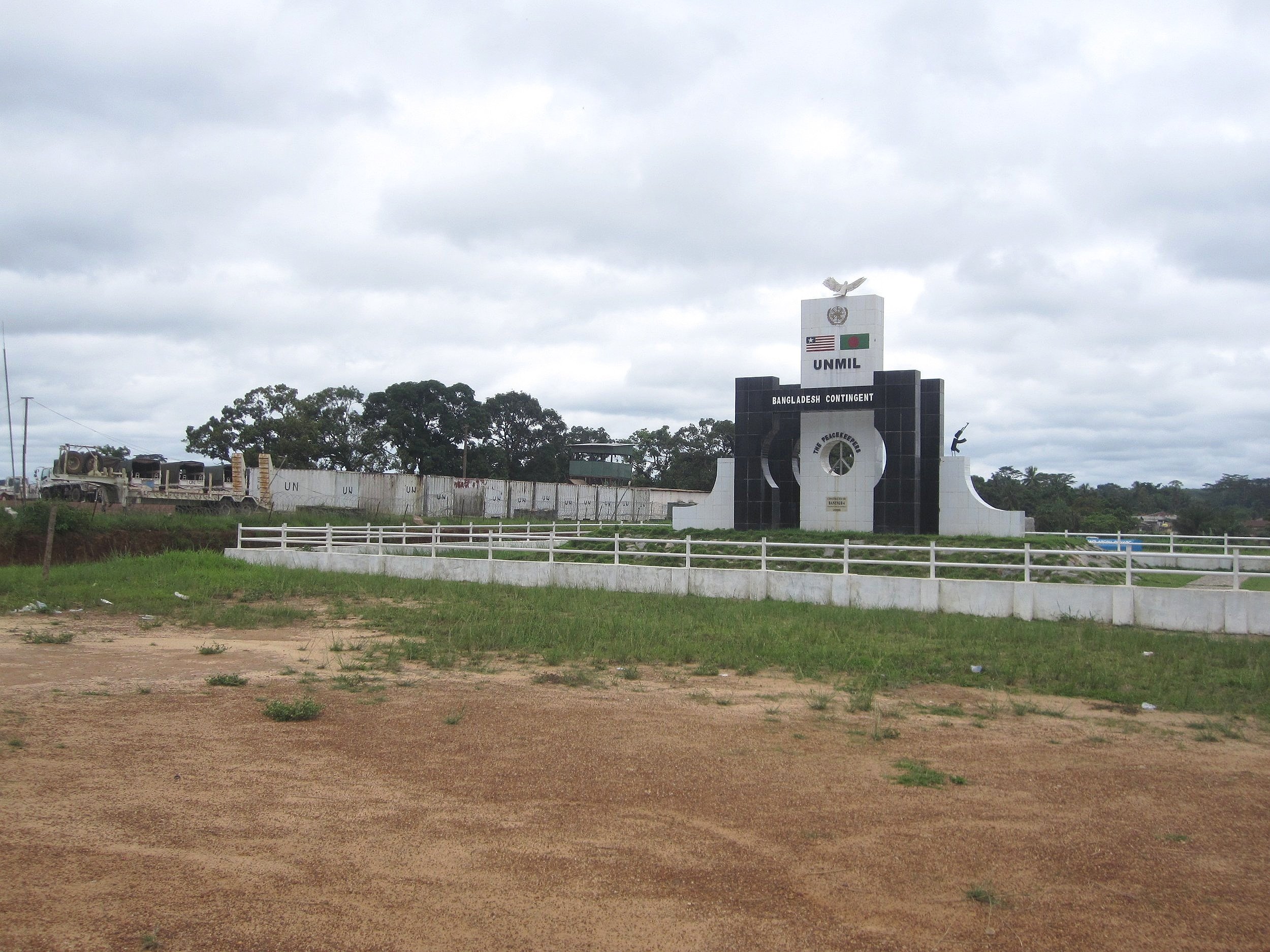
Peacekeeping Economies
Research Overview
My research on peacekeeping economies asks the following questions:
How do peacekeeping operations affect the local economy?
How does peacekeeping withdrawal affect the local economy?
Research Methods: Large-scale, representative surveys in Liberia
The research finds that peacekeeping missions have the potential to stimulate the local economy upon their arrival. However, sometimes this growth results in negative externalities such the growth of a sex industry. Our research in Monrovia, Liberia, for example finds that of more than half of those who engage in transactional, a large majority of them occurred (more than 75 percent) with UN personnel. We estimated that each additional battalion of UN peacekeepers caused a significant increase in a woman's probability of engaging in her first transactional sex. Moreover, peacekeeping missions do not thoroughly plan for how their exit will affect the local economy, leaving both the country and individual host community members vulnerable to the economic shock of exit. We find that those individuals who were less reliant on the mission for their livelihoods and who had diversified their economic resources were better off after exit. Much of this work is a part of the ESRC funded “ After Exit: Assessing the Consequences of United Nations Peacekeeping Withdrawal” Project.
Peer-Reviewed Published Research
-
Contemporary United Nations (UN) peacekeeping deployments commonly pursue both security and economic objectives, but the existing scholarly literature contains hardly any systematic assessments of peacekeeping missions’ economic effects. We address this issue in two ways. First, we use cross-country data to show that UN peacekeeping missions are large-scale economic interventions. They stimulate demand in depressed economic environments; we find significantly higher economic growth in the presence of peacekeeping deployments than in comparable cases without them. However, we estimate that economic growth rapidly declines when missions end, which suggests that they do not necessarily promote stable economic development. Second, we provide evidence in this vein by turning to microlevel survey data that we collected in Monrovia, where the United Nations Mission in Liberia (UNMIL) had a large presence from 2003 onward. Our data suggests that UNMIL's spending created demand for low-skill employment in the service sector, largely without facilitating skill transfers or loosening credit constraints for business owners. This illustrates the problem of “peacekeeping economies” suggested by our cross-country analysis: peacekeeping missions help create an economic boom fueled by demand in nontraded products, particularly low-skill services, which may not be robust to the mission's withdrawal.
-
United Nations policy forbids its peacekeepers and other personnel from engaging in transactional sex (the exchange of money, favors, or gifts for sex), but we find the behavior to be very common in our survey of Liberian women. Using satellite imagery and GPS locators, we randomly selected 1,381 households and randomly sampled 475 women between the ages of eighteen and thirty. Using an iPod in private to preserve the anonymity of their responses, these women answered sensitive questions about their sexual histories. More than half of them had engaged in transactional sex, a large majority of them (more than 75 percent) with UN personnel. We estimate that each additional battalion of UN peacekeepers caused a significant increase in a woman's probability of engaging in her first transactional sex. Our findings raise the concern that the private actions of UN personnel in the field may set back the UN's broader gender-equality and economic development goals, and raise broader questions about compliance with international norms.
Work in Progress
-
Existing studies show that the deployment of a peacekeeping operation (PKO) can provide an economic boost to the host state and its population. Some of those studies also suggest that such a boost is unsustainable and that peacekeeping exit may trigger economic downturn within host states. If that is the case, however, do some locals feel the adverse economic effects of PKO exit more than others? In this article, we argue that individuals whose incomes had come to depend on the peacekeeping ‘bubble economy’ are particularly likely to experience negative economic effects after PKO exit; however, those effects can be mitigated through individuals’ economic actions and/or their access to new sources of outside support after the exit of peacekeepers. We test our argument on original data gathered through a large-scale household survey of Monrovia, Liberia, conducted in early 2020. We also draw on qualitative interview data. After noting an overall downturn in Liberia’s economy after 2018 (when the UN Mission in Liberia closed), we find broad support for our claims in the survey data, albeit qualified by nuances in a secondary, disaggregated analysis. We conclude by highlighting implications of our study for the planning and management of peacekeeping mission closures.